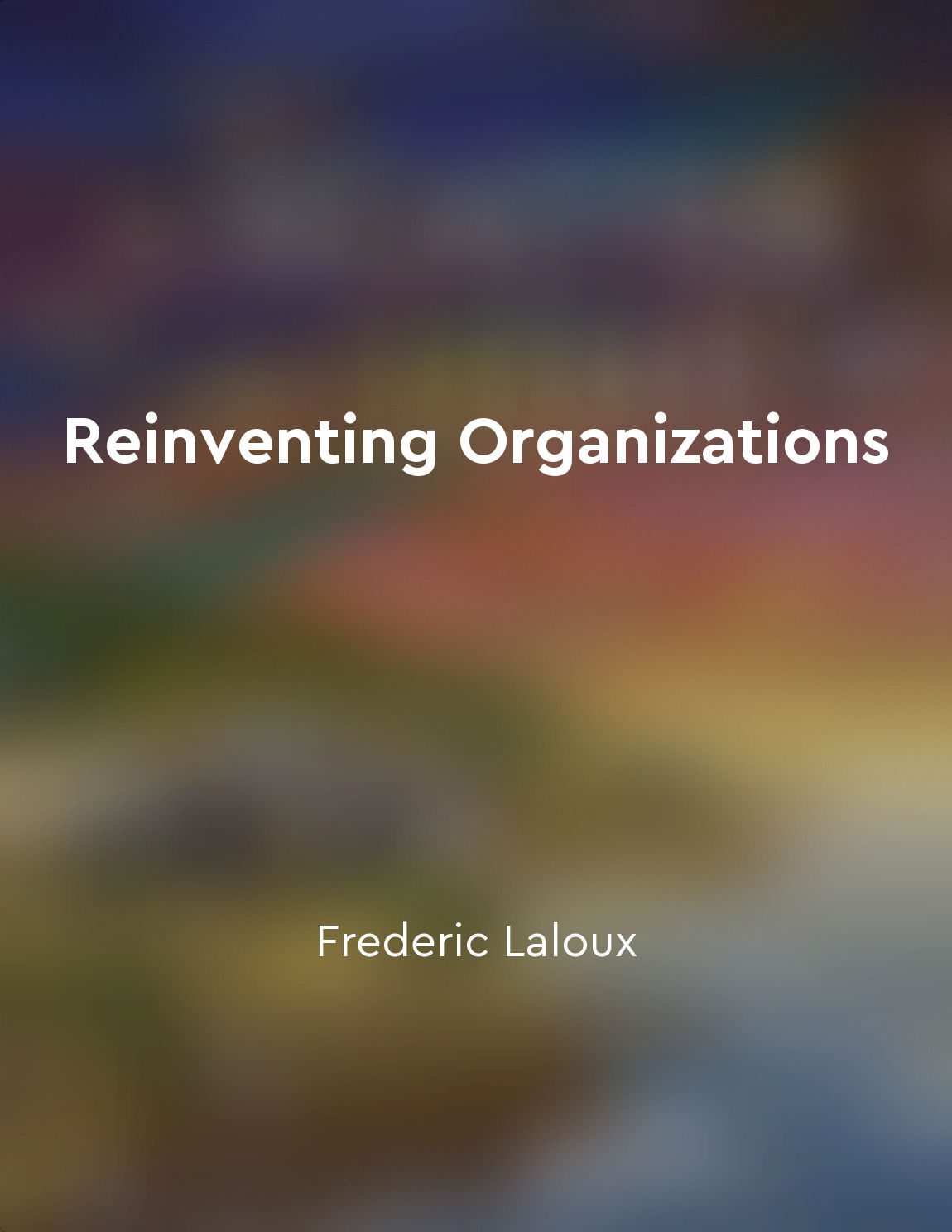Empower employees to make decisions from "summary" of Brave New Work by Aaron Dignan
In order to truly leverage the collective intelligence of an organization, leaders must learn to trust their employees to make decisions. This means giving up some control and allowing individuals at all levels of the organization to take ownership of their work. By doing so, leaders not only empower their employees, but also create a more agile and responsive organization. When employees are given the freedom to make decisions, they are more likely to feel engaged and motivated in their work. They are able to see the impact of their choices and take pride in the outcomes. This sense of ownership can lead to greater job satisfaction and a stronger commitment to the organization's goals. Empowering employees to make decisions also leads to faster decision-making and increased innovation. When decisions are pushed down to the frontline, organizations are able to respond more quickly to changing market conditions and customer needs. Employees on the front lines often have a better understanding of the day-to-day realities of the business and can come up with creative solutions to problems. Of course, empowering employees to make decisions requires a certain level of trust and transparency from leaders. It means being willing to give up some control and accept that not every decision will be perfect. However, the benefits of empowering employees far outweigh the risks. When employees feel trusted and valued, they are more likely to take initiative and go above and beyond in their work.- Empowering employees to make decisions is not just about giving up control, but about creating a culture of trust, transparency, and collaboration. It is about recognizing that the best ideas can come from anywhere in the organization and that by giving employees the freedom to make decisions, leaders can unlock the full potential of their teams.
Similar Posts

Focus on longterm relationships rather than short-term gains
In the world of business, it can be easy to get caught up in the pursuit of short-term gains. Many companies focus solely on im...
Trust is the foundation upon which all successful relationships are built
Trust is the bedrock of all relationships. It is the fundamental principle that underpins every interaction and every transacti...
Change is inevitable and constant
Change is like the weather – it is always happening, and it is always changing. Just as the seasons shift from winter to spring...
Saiba delegar tarefas de forma assertiva
Delegar tarefas é uma habilidade essencial para qualquer líder ou gestor. No entanto, delegar de forma assertiva vai além de si...
Adapt quickly
Being able to adapt quickly is a critical skill for any CEO. In today's fast-paced business environment, being able to pivot an...
Leaders should be humble and openminded
In order to navigate the complex and rapidly changing landscape of modern organizations, leaders must possess a unique blend of...
Prioritize the wellbeing and mental health of your team members
The most important thing when leading a team is to remember that the people you work with are not just cogs in a machine, but i...
Seek feedback and input from others to make informed decisions
To make the most informed decisions possible, it is important to seek feedback and input from others. This approach allows us t...

Reengineering requires a longterm commitment from top management
Reengineering is not a quick fix; it is a fundamental rethinking and radical redesign of business processes to achieve dramatic...

Organizations evolve through different stages of development
In the world of organizations, we can observe a fascinating pattern - they seem to evolve through different stages of developme...


